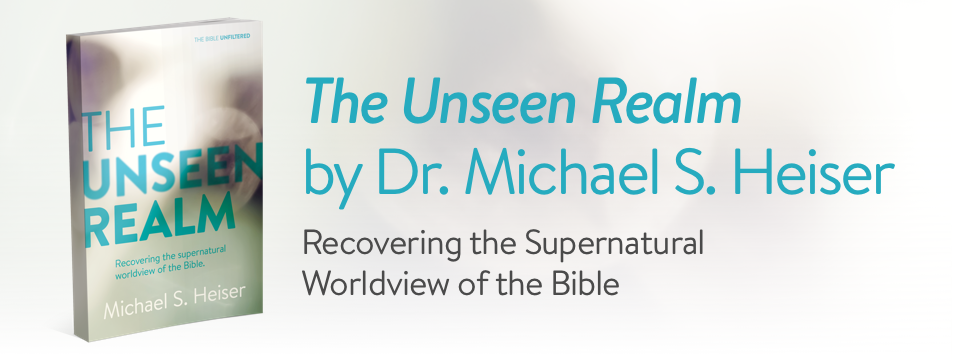

There’s only one God (capital G) even though there are many gods (lower case g).

If the Hebrew term “elohim” simply carried the same connotations as “spirit”, then to say that there are many gods wouldn’t violate traditional monotheism anymore than saying there are many spirits. Just as I wouldn’t object to saying “God is a spirit” and “Satan is a spirit”. To refer to angels and demons as elohim (i.e supernatural, immaterial entities) isn’t theologically objectionable. He’s not as powerful as God, not as knowledgeable, and he’s not everywhere present. But certainly, Satan is not on the same level as God. There’s The HOLY Spirit, and then there are evil spirits. We would say God is a “Spirit”, but not all “spirits” are God. For the ancient Israelite, Elohim was like our modern term “Spirit”. Yahweh is an Elohim, but not all Elohim are YWWH. Elohim, according to Heiser simply refers to some supernatural spirits. After all, it has traditionally been understood that 2 Corinthians 4:4 is referring to Satan (“ The god of this world has blinded the minds of unbelievers”). The only alternative candidates are other supernatural entities.įirst of all, I really have no issue with the word “god(s)” being referred to super powerful, supernatural entities. To interpret them as being Jewish leaders doesn’t work either as there is no biblical or extra-biblical evidence that the Jews ever ruled nations outside of Israel (which is what Psalm 82 says the “gods/elohim” did, and did so in a corrupt manner). To interpret the second usage of elohim (the Hebrew translated as God and gods) as referring to other persons of the Trinity entails that God The Father is judging the Son and The Holy Spirit for corruption. Heiser rightly points out that Psalm 82 must be referring to angelic beings because all other interpretations have fatal flaws. Heiser’s proposal seems to be that the Jews viewed angels and demons as lesser “gods” (lowercase g) which were subservient to the supreme God Yahweh. In the first chapter, Heiser introduces us to “The Divine Council” worldview of The Bible, which is what he based his doctoral dissertation on. That is what this blog post is all about.

Sometimes I do a soliloquy or write out my thought process when there is subject matter or information that I need to digest, especially if I find that subject matter new or troubling. Heiser talks about this in this lecture as well btw.

I mentally wrestled with his prospect of “the divine council”. Recently, I read Michael Heiser’s book The Unseen Realm: Recovering The Supernatural Worldview Of The Bible.


 0 kommentar(er)
0 kommentar(er)
